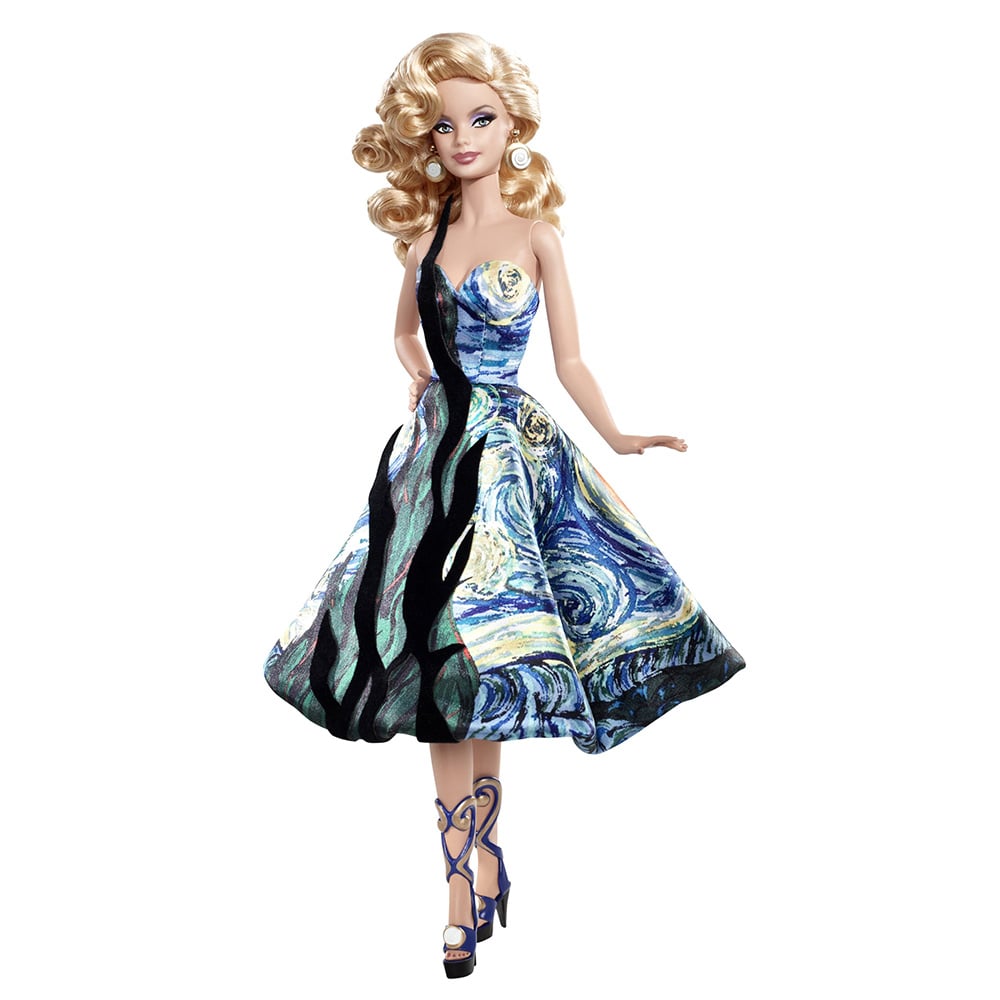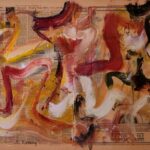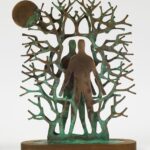Buried in the mix of the blockbuster Barbie movie’s mishmash of entry-level feminism and peppy capitalism was a stray reference to “Proust Barbie.” It was an oddly high-brow joke in a film of weird decisions and director Greta Gerwig threaded it in because kids aren’t exactly known for their love of Proust, and it reflected the French novelist’s habit of involuntary memory.
But while Proust Barbie may not be real, Mattel in 2015 dabbled with a line of uncommonly intellectual versions of the doll in the past—the Museum Collection.
Styled after the works of Gustav Klimt, Leonardo da Vinci, and Vincent Van Gogh, these Barbies were the product of Mattel designer and art lover Linda Kyaw. She wanted to “do something different” from the usual all-pink ensembles, by placing an emphasis on the fashion of some of the most iconic paintings of all time.
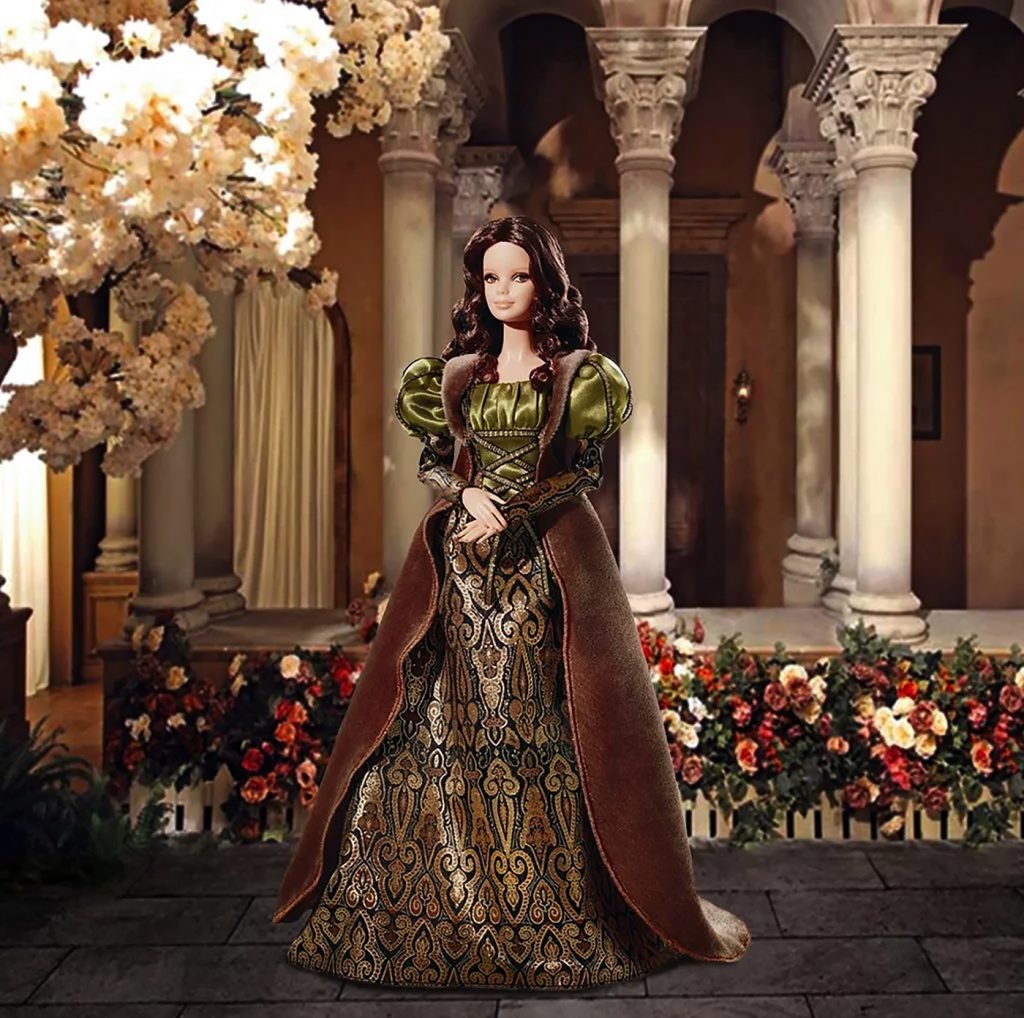
Da Vinci Barbie from Barbie: The Museum Collection. Photo courtesy of Mattel.
These Barbies may be collector’s items in the doll world but to anyone with a passing knowledge of art, they’re far from niche. The Da Vinci Barbie is modeled after the Mona Lisa, complete with green dress and inscrutable smile, as part of Kyaw’s bid to “conceptualize” the rest of her dress, using the colors of the painting’s background. Her enigmatic grin was captured by painter Ei Fong.
Meanwhile, the Van Gogh Barbie is decked out in a glamorous, full-skirted cocktail dress featuring a pattern based on The Starry Night (1889). Kyaw said her aim was “to fuse the original painting with an edgy fashion dynamic.”
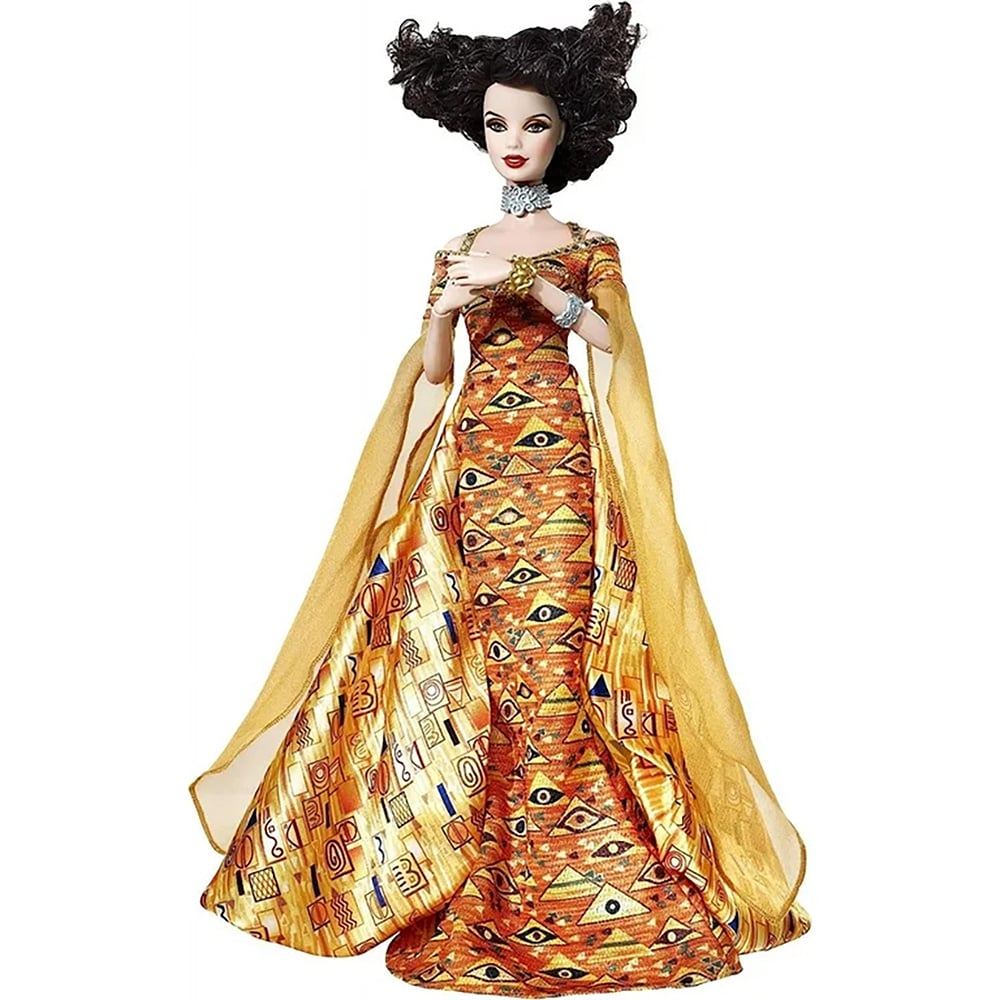
Klimt Barbie from Barbie: The Museum Collection. Photo courtesy of Mattel.
If you’ve ever wanted to own a doll that looks like Adele Bloch-Bauer then you’re in luck—the Gustav Klimt Barbie is fashioned after the subject of Portrait of Adele Bloch-Bauer I (1907). The sitter died almost 100 years ago, making it difficult to judge whether she would have imagined herself reborn as a Barbie doll. Klimt is one of Kyaw’s favorite artists and she explained that she used a specific Aphrodite face mold for the Bloch-Bauer Barbie’s head “because it bears a striking resemblance to Adele.”
What’s the deal with Leonardo’s harpsichord-viola? Why were Impressionists obsessed with the color purple? Art Bites brings you a surprising fact, lesser-known anecdote, or curious event from art history.
Follow Artnet News on Facebook:
References: this article is based on content originally published by on Artnet. You can read the full article here.
